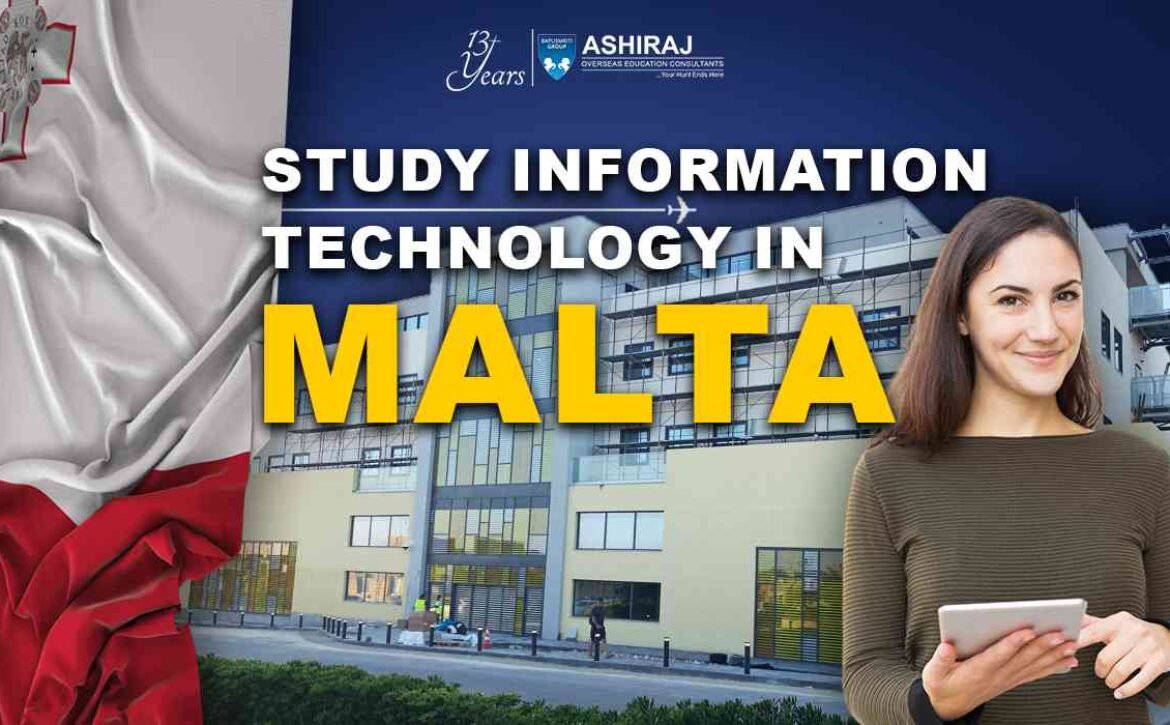
Information Technology in Malta
In the modern landscape of Malta, information technology (IT) plays a pivotal role in driving economic growth, enhancing government services, and connecting individuals on both local and global scales. The strategic integration of IT infrastructure and digital solutions has propelled Malta into a competitive position within the European Union and beyond. From the bustling streets of Valletta to the serene shores of Gozo, the pervasive influence of information technology permeates every aspect of Maltese society, shaping how businesses operate, citizens interact, and governance is conducted. With a burgeoning tech industry and a supportive regulatory environment, Malta stands as a beacon of innovation and digital transformation in the Mediterranean region.
Information technology in MALTA is more than just a catchphrase; it embodies the dynamic ecosystem of technological advancements, digital literacy initiatives, and collaborative partnerships driving Malta’s evolution into a digital powerhouse. Whether it’s fostering startups in emerging tech sectors, implementing e-government services for streamlined public administration, or harnessing the power of blockchain technology for financial innovation, the trajectory of Malta’s technological landscape is defined by ambition, adaptability, and a commitment to leveraging IT for the betterment of society.
Why to Study Information Technology in Malta?
- Thriving Tech Ecosystem: Malta boasts a vibrant tech industry with numerous opportunities for students to engage in cutting-edge projects and internships, gaining practical experience.
- Strategic Location: Situated at the crossroads of Europe, Africa, and the Middle East, Malta provides a strategic gateway to diverse markets, offering students exposure to international business dynamics.
- Renowned Institutions: Malta is home to reputable universities and colleges offering a wide range of IT-related programs accredited by international bodies, ensuring high-quality education.
- Multicultural Environment: With its diverse population and cosmopolitan atmosphere, studying IT in Malta offers students the chance to collaborate with peers from around the world, fostering cultural exchange and global perspectives.
- Supportive Government Policies: Malta’s government actively promotes the development of the IT sector through favorable policies, incentives, and investments, creating a conducive environment for students to thrive.
- Innovative Technologies: Being at the forefront of technological advancements such as blockchain and AI, studying IT in Malta provides access to state-of-the-art facilities and opportunities to work on groundbreaking projects.
- Career Opportunities: Graduates of IT programs in Malta are highly sought after by both local and international companies, offering promising career prospects and competitive salaries in a rapidly evolving industry.
Information technology in MALTA presents an exciting prospect for students seeking a dynamic and rewarding educational experience in one of Europe’s emerging tech hubs.
Top Universities to Study Information Technology in Malta
University Name | QS World University Rankings 2023 | Type of University | Average Annual Fees | Programs Offered |
University of Malta | 601-800 | Public | €1,000 – €5,000 | Computer Science, IT Management, Information Systems |
Malta College of Arts, Science and Technology (MCAST) | – | Public | €500 – €2,000 | Information Technology, Software Development, Network Engineering |
American University of Malta | – | Private | €5,000 – €10,000 | Computer Engineering, Data Science, Cybersecurity |
Middlesex University Malta | – | Private | €6,000 – €12,000 | Information Technology Management, Software Engineering, Digital Innovation |
European Institute of Education | – | Private | €4,000 – €8,000 | Artificial Intelligence, Digital Marketing, Web Development |
Information technology in MALTA is enriched by a diverse array of educational institutions catering to students’ needs and aspirations. These universities not only offer quality education but also provide students with the skills and knowledge necessary to thrive in the dynamic field of information technology.
Course Curriculum for Information Technology in Malta
- Comprehensive Core Modules: The course curriculum of Information Technology in Malta encompasses foundational subjects such as computer programming, database management, and systems analysis, ensuring students develop a solid understanding of fundamental concepts.
- Specialized Tracks: Students have the opportunity to tailor their studies according to their interests and career goals through specialized tracks such as cybersecurity, software development, and network administration, allowing for deeper exploration of specific areas within IT.
- Hands-on Practical Experience: Emphasis is placed on practical learning through hands-on projects, internships, and industry collaborations, providing students with real-world experience and skill development crucial for success in the field.
- Integration of Emerging Technologies: The curriculum is designed to incorporate emerging technologies such as artificial intelligence, blockchain, and cloud computing, equipping students with the latest tools and techniques shaping the future of IT.
- Industry-Relevant Electives: Elective courses offer flexibility for students to delve into niche areas of interest or to acquire supplementary skills aligned with industry demands, ensuring graduates are well-equipped to meet the evolving needs of the Information technology in MALTA sector.
Eligibility Criteria & Admission Requirements for MS in Information Technology in Malta
- Language Proficiency: Applicants must demonstrate proficiency in English through either the IELTS or TOEFL exams. The minimum required scores for IELTS are 6.5 overall with no band less than 6.0, while for TOEFL, a minimum score of 80 is typically required.
- Standardized Tests: Depending on the university and program, applicants may need to submit scores from either the GRE or GMAT exams. The required scores vary but generally fall within the range of 300-320 for GRE and 550-650 for GMAT.
- Documentation: Prospective students are required to submit essential documents including a valid passport, academic certificates/transcripts, and proof of relevant work experience in the IT field, if applicable.
Table Format:
Test | Minimum Score |
IELTS | 6.5 overall with no band less than 6.0 |
TOEFL | 80 |
GRE | 300-320 (approximate range) |
GMAT | 550-650 (approximate range) |
Information technology in MALTA programs have specific eligibility criteria ensuring that students possess the necessary skills and qualifications to excel in their studies and contribute meaningfully to the field.
Documents Required for Studying Information Technology in Malta
- Passport: A valid passport is essential for identification and visa processing.
- Letters of Recommendation (LOR): Typically, two letters from academic or professional referees endorsing the applicant’s abilities and suitability for the program.
- Statement of Purpose (SOP): A concise essay outlining the applicant’s academic background, career aspirations, and reasons for choosing the specific program in Malta.
- Curriculum Vitae (CV): A comprehensive document summarizing the applicant’s educational background, work experience, skills, and achievements.
- Official High School Transcripts: Transcripts detailing the applicant’s academic performance during high school.
- Educational Certificates: Certificates verifying academic qualifications, including degrees or diplomas earned.
- Work Experience Certificate: If applicable, a certificate verifying relevant work experience in the field of information technology.
- Proof of Financial Resources: Documentation demonstrating the applicant’s ability to cover tuition fees, living expenses, and other costs associated with studying in Malta.
Ensuring the submission of these documents is crucial for a successful application to an Information technology in MALTA program, facilitating the admission process and visa application.
Admission Process for Information Technology in Malta
- Research: Explore universities in Malta offering Information Technology programs and review their admission requirements, faculty profiles, and program offerings.
- Application Submission: Complete the online application form provided by the chosen university, ensuring all required fields are accurately filled out.
- Document Submission: Gather and submit necessary documents including academic transcripts, certificates, letters of recommendation, statement of purpose, CV, passport, and proof of financial resources.
- Standardized Tests: Take the required standardized tests such as IELTS or TOEFL for English proficiency, and GRE or GMAT if specified by the university.
- Application Review: Once the application and supporting documents are submitted, the university’s admissions committee will review the application package thoroughly.
- Interview (if required): Some universities may require applicants to participate in an interview to assess their suitability for the program.
- Offer Acceptance: Upon successful review of the application, the university will send an offer letter outlining the terms and conditions of admission.
- Visa Application: Accepted students will need to apply for a student visa, providing additional documentation as required by Maltese immigration authorities.
Navigating the admission process for Information technology in MALTA programs requires careful attention to detail and adherence to deadlines to ensure a smooth application journey.
“Education is the most powerful weapon which you can use to change the world.”
Nelson Mandela
Cost of Information Technology Course in Malta
- Tuition Fees: The tuition fees for Information technology in Malta programs vary depending on the university, program level, and duration. On average, annual tuition fees range from €1,000 to €12,000.
- Living Expenses: Students should budget for accommodation, food, transportation, and other personal expenses. Monthly living costs in Malta typically range from €700 to €1,200.
- Books and Supplies: Additional expenses may include textbooks, course materials, and supplies, which can vary depending on the program requirements.
- Health Insurance: International students are often required to have health insurance coverage during their stay in Malta. The cost of health insurance varies depending on the provider and coverage options.
- Miscellaneous Expenses: Other miscellaneous expenses such as visa application fees, residence permit fees, and leisure activities should also be considered when budgeting for studying in Malta.
While the cost of studying Information technology in Malta may seem daunting, scholarships, grants, and part-time employment opportunities can help offset expenses and make studying abroad more affordable for students.
Scholarships for Information Technology Courses in Malta
Scholarship Name | Amount | Application Deadline |
Malta Government Scholarships | Varies | March 31st |
University-specific Scholarships | Varies | Varies |
Erasmus+ Scholarships | Varies | February 1st |
Commonwealth Scholarships | Full tuition fees, stipend, and travel allowance | Varies |
Industry-sponsored Scholarships | Varies | Varies |
Information technology in MALTA students have access to various scholarship opportunities, which can help alleviate the financial burden of studying abroad. Prospective students need to research and apply for scholarships well in advance of their intended start date to maximize their chances of securing financial assistance.
Career Opportunities After Information Technology in Malta
Job Profile | Average Salary (EUR) |
Software Developer | €25,000 – €40,000 |
IT Project Manager | €35,000 – €50,000 |
Network Administrator | €20,000 – €35,000 |
Cybersecurity Analyst | €30,000 – €45,000 |
Data Scientist | €40,000 – €60,000 |
Information technology in MALTA offers a wide range of career opportunities for graduates, with roles spanning software development, project management, network administration, cybersecurity, and data science. These roles are in high demand due to Malta’s growing tech industry and digital transformation initiatives. Graduates can expect competitive salaries and opportunities for career advancement in diverse sectors such as finance, healthcare, gaming, and e-commerce. With the right skills and qualifications, Information technology in MALTA professionals can thrive in dynamic and rewarding careers while contributing to Malta’s innovation ecosystem.
Frequently Asked Questions About Information Technology in Malta
Some of the top universities offering Information Technology programs in Malta include the University of Malta, Malta College of Arts, Science and Technology (MCAST), and Middlesex University Malta.
Admission requirements typically include submitting academic transcripts, standardized test scores (such as IELTS or TOEFL), letters of recommendation, a statement of purpose, and proof of financial resources.
Yes, there are various scholarships available for international students studying Information Technology in Malta, including government scholarships, university-specific scholarships, and external funding opportunities like Erasmus+ scholarships.
The average cost of studying Information Technology in Malta varies depending on factors such as tuition fees, living expenses, and additional costs. On average, tuition fees range from €1,000 to €12,000 per year.
Graduates of Information Technology programs in Malta can pursue careers as software developers, IT project managers, network administrators, cybersecurity analysts, data scientists, and more, with competitive salaries and opportunities for advancement.
Work experience is not always required for admission to Information Technology programs in Malta, but it can strengthen an applicant’s profile and provide valuable insights into the industry.
The duration of Information Technology programs in Malta varies depending on the level of study. Bachelor’s degrees typically take three to four years to complete, while master’s degrees may take one to two years.
Yes, international students are allowed to work part-time while studying in Malta, typically up to 20 hours per week during the academic year and full-time during holidays.
International students studying Information Technology in Malta need to apply for a student visa, which requires submitting various documents including proof of acceptance from a Maltese university, proof of financial resources, and a valid passport.
Yes, English proficiency is typically required for studying Information Technology in Malta. Applicants must demonstrate proficiency through standardized tests such as IELTS or TOEFL, with minimum scores set by the university.




